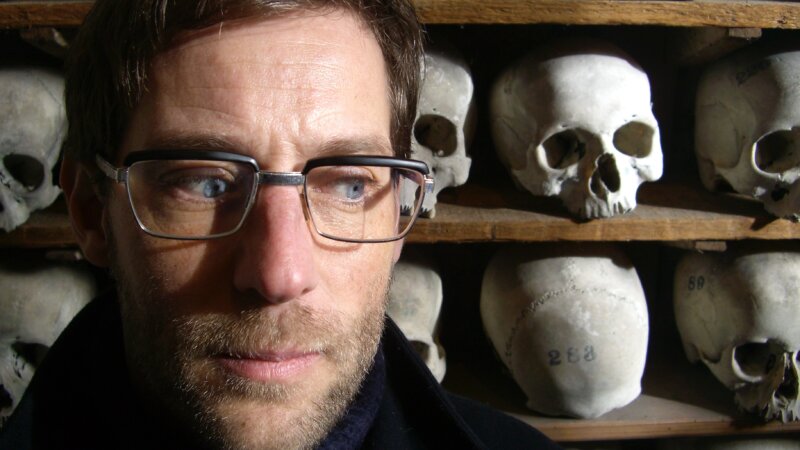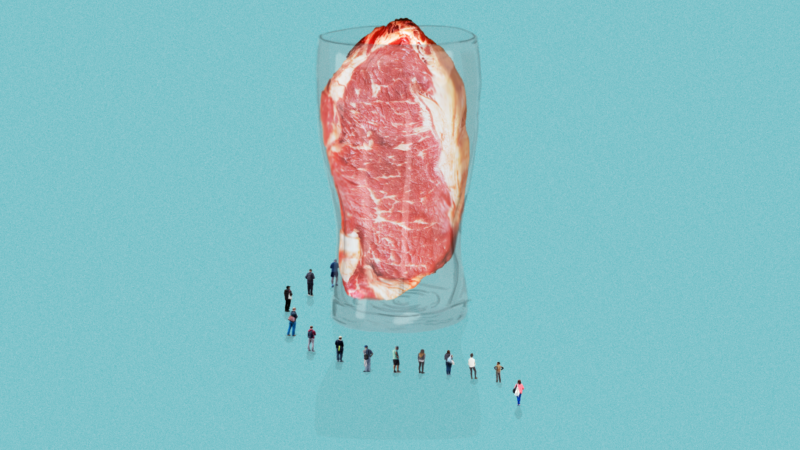Abundance: Making The Most of What We’ve Got
Lucy isn’t a massive fan of heights. She’d rather be safely on the ground instead of halfway up a swaying tree, holding on with one hand while leaning out precariously into the void. Which is unfortunate for her, as climbing trees is a big part of her role as Abundance coordinator.
Throughout the harvest season, which can run from August all the way into December, Lucy and her fellow volunteers spend their free time clambering up trees in people’s back gardens and common grounds across Sheffield, picking the fruit that’s dripping off them which would otherwise rot and die.
The fruit pickers are part of Sheffield’s Abundance project. “I’m naturally quite scared of heights,” Lucy says sheepishly. “I never climbed trees when I was little. I couldn’t do it. I was too scared.” She says that she’s getting used to it. “I really enjoy it. It helped me with my fear of heights and to realise a bit more the capabilities of my own body,” she says, brightening.
Sheffield is one of the greenest cities in the UK. Parks stretch on and on, even in the middle of the most urban parts of the city, trees line avenues and stand to attention in the middle of roundabouts, and gardens and common grounds are full of trees with plump fruit hanging off them like jewels on an overdressed aunt at Christmas.
The problem with all this wealth of free food is that we don’t know what to do with it. Year after year, trees blossom, fruit swells and then puckers and rots on the branches of forgotten trees at the bottom of gardens all over the city.
Anne-Marie Culhane started up the Grow Sheffield project in 2007 and co-founded Abundance with artist and gardener Stephen Watts to, as their website says, “connect people to each other, to their environment and the seasons using food and food growing.”
Abundance is the harvesting arm of Grow Sheffield. While Grow Sheffield focuses on the new - planting, art exhibitions, teaching about growing organically - Abundance is all about making the most of what the city’s already got, which is also their tagline. They make the rounds of Sheffield’s forgotten fruit trees - with permission from the garden owners (if you find someone unexpectedly halfway up a tree in your back garden, it’s safe to assume they’re not going to be giving you apples when they get down and you should probably call the police) - and harvesting the city’s annual glut of fruit. They got over a tonne of fruit last year.
The project gets tip-offs throughout the year of trees heavy in fruit that’s just begging to be eaten, then get in touch with whoever lives there and volunteers go and pick the fruit once it’s ready, giving some to the owner, taking some for themselves and donating the rest of the haul to food banks, supported living centres and community centres across the city. Sometimes they get arty and hold exhibitions and every September they have an art and gardening event at an allotment called Allotment Soup. They also provide a map of cafes and restaurants that get their food from local independent fair food sources, the Sheffield Food Network. It’s a non-profit group and survive through funding from different sources, including Sheffield on a Plate (until July).
The benefits of spending time in nature are obvious - fresh air, physical activity, the happy feeling that you get from all that sun flooding your pituitary gland with all that lovely serotonin. The internet is full of lists promising to make you into a better, happier, more productive person, and most of the advice centres around taking walks in the sunshine and writing down things you’re grateful for (presumably to turn into more lists to continue the population of the Internet).
Lucy says that learning more about the seasons and getting more familiar with the world we live in is a big part of what Grow Sheffield, and by extension, Abundance, is all about. She says that it’s important to realize where food comes from, and how easy it is to become distanced from our food, sometimes not even recognising it as food if it’s not wrapped in plastic and sitting on a supermarket shelf. When you can access all kinds of fruit all year round, you forget that that’s not how it really works.
“I had a conversation with a lady from work, an intelligent lady. She asked me about my other job [Lucy works supporting people with learning difficulties as her ‘bread and butter’ work], and she said, ‘Oh, we’ve got an apple tree in our garden but we didn’t think that you could eat the apples.’ So she saw apples and because they weren’t in the supermarket she thought she couldn’t eat them. And she knew what they were. Because apples look like apples.”
At the moment Abundance are running grafting and pruning workshops, which are free to get involved in, and they’re always looking for people to harvest and help distribute the fruit they find. Lucy’s aiming to set up a team of cycle and car distributors (fuel will be reimbursed, she says). Specifically they’re looking for harvest area coordinators (to spot trees and contact the owners) and the very formally named preservation officers, to help run chutney and juicing workshops.
For more information, you can visit their website or check out their blog. Upcoming events appear on their Facebook page.
Upcoming Abundance Events
SAT 16 MAY
Eco-Congregation event at Crystal Peaks. Part of Sheffield Environment Week. Stall sowing seeds.
SAT 25 MAY
Stalls as part of Taste Moor and Sheffield Food Fesival. Sowing seeds and tasting chutney.
Photo by Joshua Waller )





